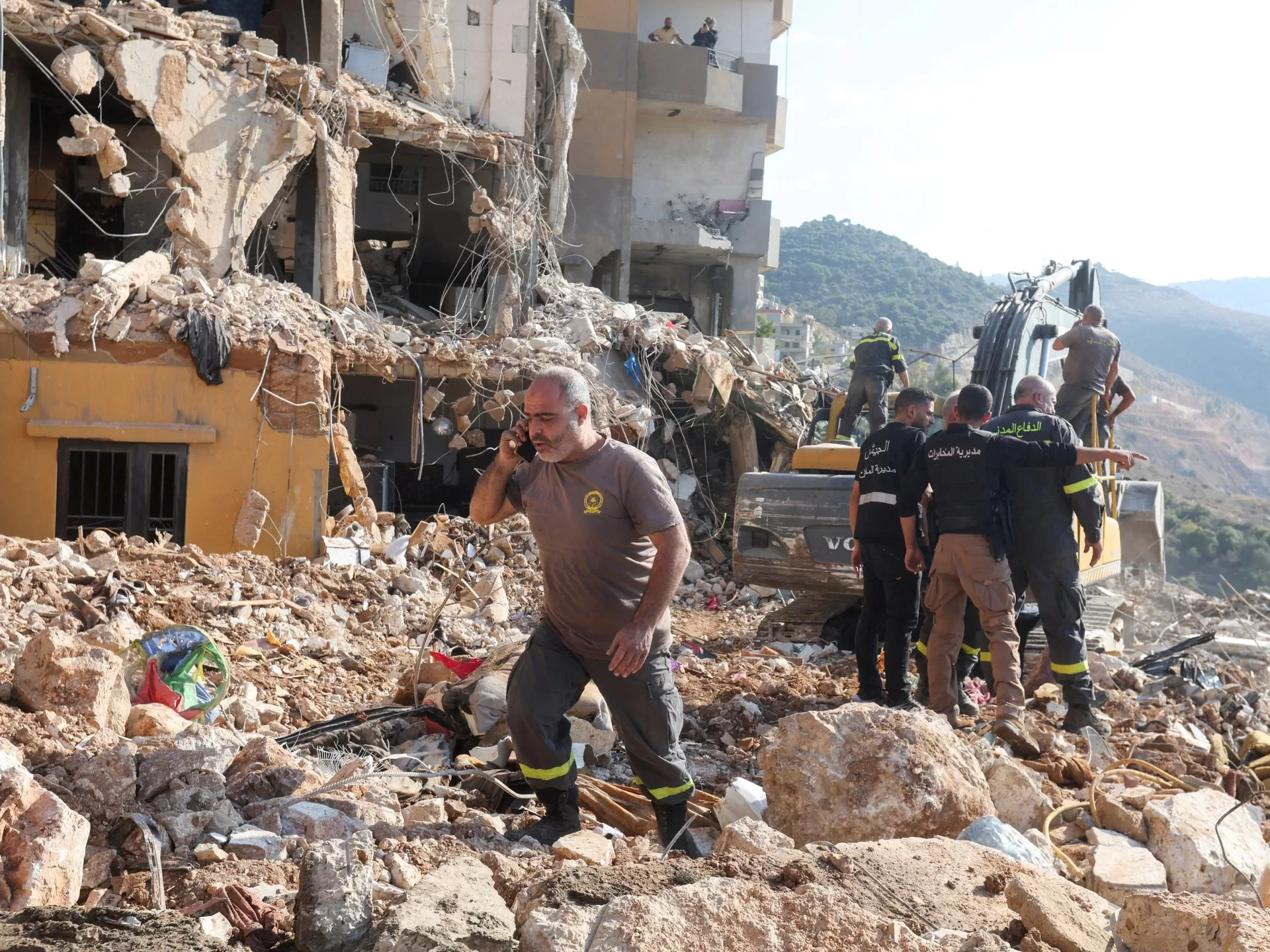Plumes of smoke have been seen rising above Beirut as Israel strikes city after forced evacuation orders issued for four southern neighbourhoods.
Lebanese armed group Hezbollah has said that it targeted an Israeli military base south of Tel Aviv with a swarm of drones “for the first time”, as Israel launched renewed air strikes on the southern suburbs of Beirut city.
Hezbollah fighters launched a “squadron of attack drones at the Bilu base south of Tel Aviv, for the first time”, late on Wednesday, the group said in a statement.
There were no immediate reports of casualties or damage to infrastructure from Israeli authorities.
Earlier, Hezbollah also claimed a slew of attacks, including two that targeted naval bases near the Israeli port city of Haifa, and another base near Israel’s main international airport close to Tel Aviv.
The Israel Airports Authority said operations at the airport were not affected by the attack.
Following the Hezbollah strikes, Israeli warplanes pounded several areas south of the capital Beirut early on Thursday morning.
Photos of the strikes showed two large plumes of smoke rising above southern Beirut as journalists in the Lebanese capital reported hearing loud explosions. Lebanon’s Al Jadeed television reported at least four strikes hitting southern parts of the capital.
The attacks followed after Israeli military Arabic-language spokesman, Avichay Adraee, warned residents in four Beirut neighbourhoods to evacuate immediately, including from a location near Beirut’s international airport, as attacks were imminent.
On Wednesday, at least 40 people were killed in Israeli strikes in Lebanon’s eastern Bekaa Valley and the city of Baalbek, according to the latest updates from the country’s Ministry of Health. The ministry said that at least 53 others were wounded in the strike.
The attacks took place shortly after Hezbollah’s new secretary-general, Naim Qassem, said he did not believe that political action would bring an end to Israel’s attacks. He said there could be a road to indirect negotiations, however, if Israel stopped its bombardment of Lebanon.
“When the enemy decides to stop the aggression, there is a path for negotiations that we have clearly defined – indirect negotiations through the Lebanese state and speaker [of parliament, Nabih] Berri,” Qassem said.
Al Jazeera’s Zeina Khodr, reporting from Beirut, said that despite the Lebanese government’s renewed call for a ceasefire and the implementation of UN Resolution 1701 in a bid to end the fighting, a ceasefire deal with Israel is unlikely anytime soon.
“The feeling in Lebanon is there won’t be any new initiative, at least not until Trump takes office in late January,” Khodr said.
“During his campaign, Trump promised to end the conflict in the Middle East. But he didn’t say how. There’s concern that the coming weeks will witness an escalation,” she said.
More than 3,000 people have been killed in Israeli strikes on Lebanon over the last year, the vast majority in the past six weeks.
